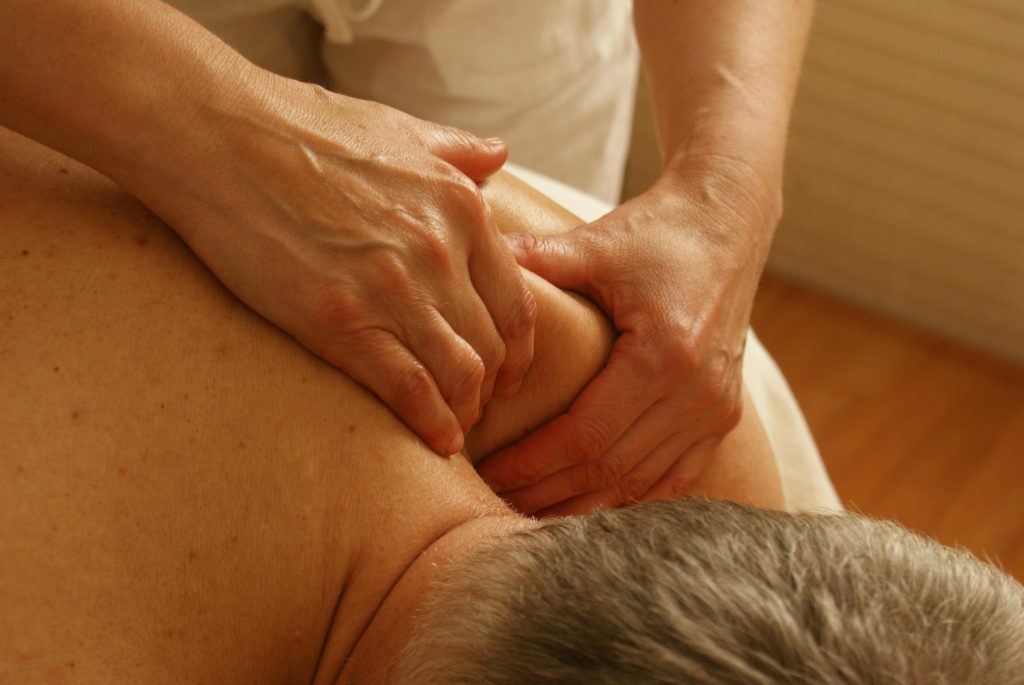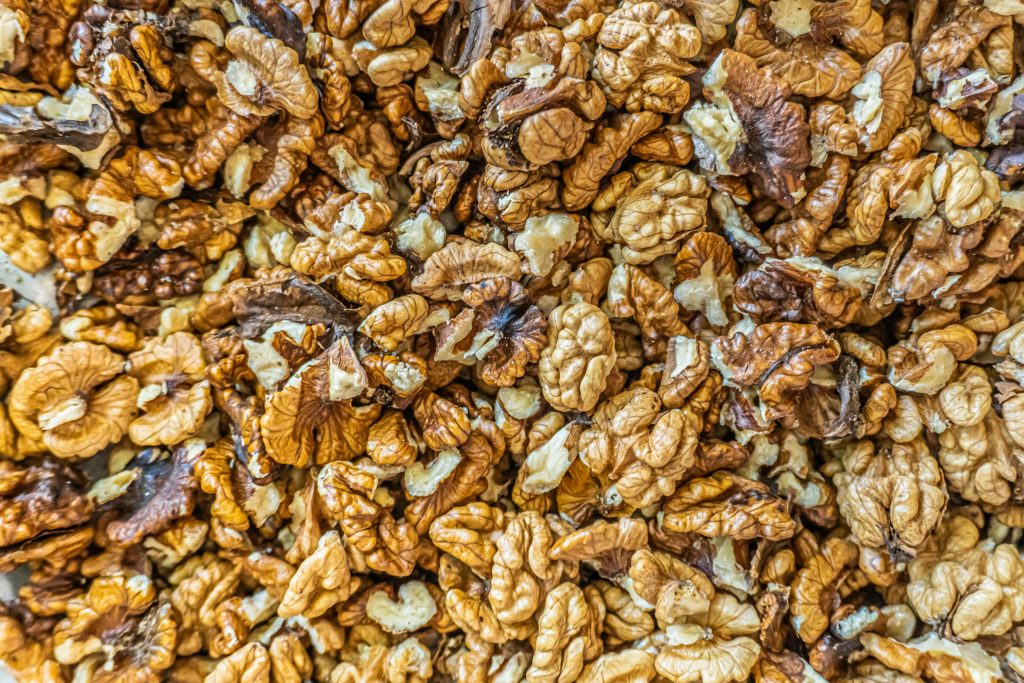You’ve just finished an intense workout. Your muscles are screaming, your body feels depleted, and you know that familiar soreness is going to hit hard tomorrow. Sound familiar?
You’re not alone in this struggle. Every day, millions of fitness enthusiasts, athletes, and weekend warriors face the same challenge: how to recover faster and get back to training stronger than before. The frustration of being sidelined by muscle soreness, the disappointment of decreased performance, and the fear of injury from inadequate recovery plague anyone serious about their fitness journey.
But what if there was a way to dramatically reduce your recovery time, minimize muscle soreness, and optimize your gains? What if you could wake up the morning after a brutal workout feeling refreshed and ready to tackle your next training session?
The answer lies in understanding and strategically implementing muscle recovery supplements that can transform your post-workout experience and accelerate your path to peak performance.
The Hidden Cost of Poor Recovery
Before we dive into the solutions, let’s face the uncomfortable truth about what poor recovery is really costing you. When your muscles don’t recover properly, you’re not just dealing with temporary discomfort, you’re sabotaging your entire fitness journey.
The Performance Penalty
Research suggests that consuming roughly 1.6 grams (g) of protein per kilogram (kg) of body weight per day is enough to maximize muscle growth [7]. However, without proper recovery support, even optimal protein intake falls short. Your strength gains plateau, your endurance suffers, and your body composition improvements stall. Every workout becomes a struggle against your own accumulated fatigue rather than a step toward your goals.
The Injury Trap
Inadequate recovery from physical exertion can also decrease performance in subsequent workouts [5]. When you push tired, unrecovered muscles, you’re walking a tightrope over injury. Muscle strains, joint pain, and overuse injuries become inevitable when your body can’t keep up with your training demands.

The Motivation Killer
Perhaps most devastating of all is what chronic soreness and fatigue do to your motivation. When every workout feels like punishment, when your body constantly aches, and when you never feel strong or energized, it becomes increasingly difficult to maintain the consistency that drives real results.
The Time Thief
Poor recovery doesn’t just affect your next workout – it steals days from your training schedule. What should be minor muscle soreness becomes multi-day limitations. Your weekly training volume drops, your progress slows, and months of potential gains slip away while you’re stuck waiting for your body to catch up.
The Science Behind Smart Recovery – Key vitamins for workout
The good news? Your body has sophisticated recovery mechanisms that can be significantly enhanced with the right nutritional support. Understanding how muscle recovery works at the cellular level reveals exactly why certain supplements can be game-changers for your training.
The Recovery Timeline
The time it takes for your muscles to recover from exercise depends on your fitness levels and the difficulty of your workout [5]. After a relatively light workout, your muscles may be able to recover in 24 hours, whereas a more challenging workout might take two to three days. This window represents a critical opportunity to accelerate and optimize the recovery process.
Muscle Protein Synthesis: Your Body’s Repair System
Protein and BCAAs trigger muscle protein synthesis (Morton et al., 2018, British Journal of Sports Medicine), facilitating muscle repair and growth [3]. This process is your body’s way of not just repairing damage from training, but actually building back stronger. The key is providing the right raw materials at the right time to maximize this natural rebuilding process.
The Inflammation Balance
While some inflammation is good, too much leads to increased muscle soreness [2]. Strategic supplementation can help manage this inflammatory response, reducing excessive soreness while preserving the beneficial aspects of exercise-induced inflammation that drive adaptation.
The Ultimate Recovery Supplement Arsenal
Now that you understand what’s at stake and how recovery works, let’s explore the supplements that can transform your post-workout experience. These aren’t just random recommendations, they’re scientifically-backed tools that address specific aspects of the recovery process.
1. Protein Supplements: The Foundation of Recovery
Why Protein is Non-Negotiable
Protein supplies the amino acids that repair and rebuild muscle tissue [7]. Without adequate protein intake, your muscles simply can’t recover and grow optimally. But not all protein sources are created equal, especially when it comes to post-workout recovery.
Whey Protein: The Speed Champion
Between whey and casein, whey is the “faster” protein supplement because its amino acids are absorbed quickly by your body [12]. This rapid absorption makes whey protein ideal for post-workout consumption when your muscles are primed for nutrient uptake.

According to Phillips et al., 2016, Nutrition & Metabolism, consuming high-quality protein immediately post-workout enhances muscle repair and reduces soreness [13]. The research consistently shows that timing matters, and whey protein’s fast-acting nature makes it perfect for that critical post-workout window.
Dosage and Timing: 20–30g post-workout within 30–60 minutes of training for optimal muscle protein synthesis (Tipton & Wolfe, 2001, Current Opinion in Clinical Nutrition & Metabolic Care) [1].
Casein Protein: The Overnight Recovery Hero
While whey dominates the immediate post-workout period, casein protein shines during extended recovery periods. The gel that casein forms in your stomach supplies a steady stream of amino acids to your muscles throughout the night and supports muscle recovery and growth [14].
Further evidence in support of extending the “recovery window” concept are results from nighttime protein ingestion studies. Madzima et al. (68) found that consumption of 30 g of casein, 30 g of whey, or 33 g of carbohydrate 30 min prior to sleep resulted in increased resting energy expenditure and improved VO2 the following morning [15].
Glam Dust
Radiant Skin – Luscious Hair – Pristine Nails
Vitamin Shots
The Ultimate Brain And Body Supplement
Vitamin Sprinkles
Fuel Your Brain – Nourish Your Body – With One Delicious Sprinkle
2. Creatine: The Recovery and Performance Powerhouse
Beyond Strength: Creatine’s Recovery Benefits
Most people know creatine for its performance benefits, but its recovery advantages are equally impressive. Creatine helps activate satellite cells in your muscles, which help the micro-tears heal [1]. This cellular repair mechanism is crucial for both recovery and adaptation.
One dietary supplement that may reduce the severity of exercise-induced muscle damage and/or promote recovery is creatine monohydrate [15]. The research on creatine’s recovery benefits continues to grow, with studies showing meaningful improvements in multiple recovery markers.
The Research Results
Interestingly, preliminary evidence is also available to suggest that creatine supplementation (20 g/day for 5 days) may attenuate post-exercise increases in markers of muscle damage and soreness, while mitigating reductions in the range of motion [15].
Subsequently, Cooke [139] found that the ingestion of Cr (0.3 g/kg BW/day) during a 5-day loading period prior to an eccentric exercise workout followed by a maintenance dose (0.1 g/kg BW/day) for 14 days post-exercise attenuated the post-exercise increase in blood markers of muscle damage and improved muscle force recovery [15].
Optimal Dosing Strategy: The general recommendation for people who do take a creatine supplement is 3 to 5 grams per day [2]. In summary, accumulating evidence indicates that you do not have to ‘load’ creatine. Lower, daily dosages of creatine supplementation (i.e. 3-5 g/day) are effective for increasing intramuscular creatine stores, muscle accretion and muscle performance/recovery [15].
3. Branched-Chain Amino Acids (BCAAs): The Soreness Fighters
Understanding the BCAA Advantage
The branched-chain amino acids (BCAAs) are a group of three essential amino acids: leucine, isoleucine, and valine. They are essential, meaning they can’t be produced by your body and must be obtained from food [7].
What makes BCAAs unique for recovery is their metabolic pathway. What’s different about BCAAs is that they’re broken down primarily within the muscle, rather than in the liver. Thus it is believed that BCAAs may contribute to energy production during exercise [7].
The Anti-Soreness Effect
Some research suggests BCAAs can help decrease muscle soreness after a workout. This soreness is called delayed onset muscle soreness (DOMS), which develops 12 to 24 hours after exercise and can last up to 72 hours [7].
This systematic review and meta-analysis investigated the effects of BCAA supplementation on muscle damage biomarkers and muscle soreness after exercise-induced muscle damage, with results showing meaningful reductions in both soreness and biochemical markers of muscle damage [3].
The Optimal BCAA Formula
Some of the best BCAA and recovery supplements for athletes include twice the amount of leucine as isoleucine or valine [1]. This 2:1:1 ratio is preferred due to evidence suggesting that leucine is the most effective in invigorating protein synthesis and limiting muscle breakdown.
Dosing Guidelines: 5–10g taken pre-, intra-, or post-workout to reduce fatigue and soreness [3].
4. Omega-3 Fatty Acids: The Inflammation Managers
The Anti-Inflammatory Advantage
Omega-3 fatty acids are healthy fats used by your body to build cells and create energy. They’re generally considered to be better for your health than other types of fats because they lower inflammation [2].
For recovery, this anti-inflammatory effect is crucial. Our research demonstrates that 3000 mg·d-1 omega-3 fatty acid supplementation minimizes the severe, delayed-onset muscle soreness that results from strenuous eccentric strength exercise [6].
The Recovery Research
Muscle soreness was significantly lower in N-3 vs PLA group at 24 h post-EIMD (p = 0.034). IL-6 was increased in PLA (p = 0.009) but not in N-3 (p = 0.434) following EIMD, demonstrating omega-3’s ability to blunt the inflammatory response to exercise [6].
The purpose of this systematic review was to critically evaluate the effects of omega-3 supplementation on post-exercise inflammatory biomarkers, oxidative response, muscle damage, and sports performance in physically active healthy adults. The results consistently showed benefits for reducing markers of muscle damage and inflammation [6].
Timing Considerations
“In order for omega-3 fatty acids to be most effective, it seems they need to be present in your body prior to exercise,” explained sports dietitian Hillary Ake, RD, CSSD [2]. “That means that eating a diet rich in omega-3s or taking a daily fish oil supplement is likely more effective than taking a supplement post-workout.”
Effective Dosing: Consumption of (at least) 2400 mg/day of omega-3 fatty acids (EPA/DHA) for (at least) 4.5 weeks appears to be effective [6].
5. Glutamine: The Recovery Catalyst
The Conditional Essential
Glutamine is another powerhouse amino acid. During high-volume or intense training, your glutamine levels deplete, which can impact recovery, immunity, and gut health [3].
While your body can produce glutamine under normal circumstances, intense training creates a demand that often exceeds natural production. This makes glutamine “conditionally essential” for serious athletes and fitness enthusiasts.
Multi-System Recovery Support
Supplementing with glutamine can promote glycogen replenishment, reduce muscle soreness, and strengthen the gut lining—a key element in systemic recovery (Cruzat et al., 2018, Nutrients) [3].
Dosing Protocol: 5g daily post-training to support immune function, gut health, and glycogen replenishment [3].
6. Electrolytes: The Performance Preservers
The Hydration-Recovery Connection
Proper hydration is key to muscle recovery as water helps transport nutrients to muscles, remove waste products, and maintain fluid balance. Dehydration can increase the risk of muscle cramps and fatigue [9].
But water alone isn’t enough. Electrolyte supplements are essential for those participating in high-intensity or endurance training. Prolonged sweating leads to fluid and mineral loss, which can cause dehydration, cramping, and poor performance [1].
The Key Players
In addition to water, electrolytes like sodium, potassium, magnesium, and calcium play a key role in muscle contraction and fluid regulation [9]. Each of these minerals serves specific functions in muscle recovery and performance.
Glam Dust
Radiant Skin – Luscious Hair – Pristine Nails
Vitamin Shots
The Ultimate Brain And Body Supplement
Vitamin Sprinkles
Fuel Your Brain – Nourish Your Body – With One Delicious Sprinkle
Supporting Muscle Recovery and Reducing Soreness
Muscle recovery after intense exercise often involves addressing muscle soreness, muscle damage, and exercise-induced muscle issues. Exercise-induced muscle damage can be minimized when strategies are used to reduce muscle soreness following a workout. Every nutrient that supports muscle function can contribute to muscle growth, muscle mass, and muscle repair. Delayed onset muscle soreness is common, and optimizing muscle protein intake can support muscle recovery time and provide essential amino acids for reducing muscle fatigue. Vitamins and minerals, including vitamins c and e, can aid post-exercise recovery and are considered among the best vitamins for muscle repair and growth. Supplements for muscle recovery may help improve muscle performance and support recovery following training. Effective recovery strategies target muscle damage and inflammation to improve recovery, stimulate muscle protein synthesis, and enhance overall recovery of muscle function.
Vitamins, Supplements, and Recovery Strategies for Muscle Health
Vitamins for muscle recovery and supplementation on muscle soreness can help reduce inflammation and speed muscle hypertrophy. Supplements for muscle growth, post-workout recovery plans, and vitamins for muscle growth are part of a comprehensive program to reduce exercise-induced muscle damage and oxidative stress.
Recovery by preventing excessive breakdown of muscle cell structures, improving muscle contractions, and increasing muscle mass and strength are key. Supplementation on skeletal muscle adaptation, proper recovery routines, and supplementation on muscle damage can accelerate recovery, stimulate muscle adaptation, and support muscle repair and growth.
Delayed-onset muscle and supplementation with vitamin c can help reduce muscle soreness after exercise and improve muscle damage and fatigue outcomes. Recovery by reducing oxidative stress, muscle growth and recovery planning, and best vitamins for muscle growth all contribute to strength and muscle development.
Supplements like magnesium supplementation for muscle soreness, antioxidant vitamin supplementation for muscle recovery, and blueberry consumption for recovery from eccentric training can improve strength recovery following exercise.
Taking supplements for exercise performance and recovery may contribute to faster recovery, support necessary for muscle repair, and improve indices of muscle damage while reducing perceived muscle soreness following intense training.
Creating Your Personal Recovery Protocol
Now that you understand the individual supplements, the key is combining them strategically for maximum effect. Your recovery protocol should be tailored to your training intensity, goals, and individual response to different supplements.
The Complete Recovery Stack
Immediate Post-Workout (0-30 minutes):
- 25-30g whey protein isolate
- 5-10g BCAAs (2:1:1 ratio)
- Electrolyte replacement drink
Pre-Bed (30-60 minutes before sleep):
- 20-30g casein protein
- 3-5g creatine monohydrate
- 5g glutamine
Daily Maintenance:
- 2400-3000mg omega-3 fatty acids (EPA/DHA)
- Continue creatine and glutamine on rest days

Timing Optimization
Timing and dosage play a significant role in supplement effectiveness [1]. The post-workout window is critical, but recovery is an ongoing process that extends well beyond your training session.
Recovery should be an ongoing focus, not just immediately after your workout [5]. While the anabolic window is crucial for nutrient absorption, muscle repair and growth continue for 24 to 48 hours post-exercise.
Special Considerations and Safety
Who Should Use Recovery Supplements?
While these supplements can benefit most active individuals, certain populations may see greater benefits:
If you’re a vegetarian or vegan, you may see more significant muscle gains by taking creatine supplements because you don’t get creatine through animal-based sources [2].
The review indicated that supplementation might be more beneficial for untrained or amateur athletes when it comes to omega-3 supplementation for recovery [6].
Safety and Interactions
An adult dose of 3 to 5 grams of creatine daily is safe. However, people with kidney disease should consult with their doctor prior to taking it [2].
BCAAs may interact with medications, including thyroid hormones, drugs for Parkinson’s, and medicines for diabetes [7].
Always consult with a healthcare provider before starting any new supplement regimen, especially if you have pre-existing health conditions or take medications.
Quality Matters
Unlike over-the-counter and prescription drugs, the FDA does not regulate the accuracy of supplement contents. So, there is always the potential that a creatine supplement contains less or more than the amount on the label [2].
Choose supplements from reputable manufacturers that undergo third-party testing for purity and potency. Look for certifications from organizations like NSF International or Informed Choice for added assurance [1].
Beyond Supplements: The Complete Recovery Picture
While supplements can significantly enhance your recovery, they work best as part of a comprehensive recovery strategy that includes:
Sleep Optimization
Despite what you may read on some fitness blogs, there’s no better way to help your muscles recover than by eating healthy foods and getting a good night’s sleep [5]. Supplements enhance recovery but cannot replace the fundamental need for adequate rest.
Progressive Training Design
The basis of any good training program is small incremental increases in intensity or volume over time. If you jump ahead too quickly, you put yourself at risk of injury or overtraining [5].
Whole Food Nutrition
Are there any natural foods that support muscle recovery? Absolutely. Whole foods rich in protein (such as chicken, fish, and legumes), omega-3 fatty acids (found in salmon and flaxseeds), and antioxidants (abundant in berries and leafy greens) can significantly support the recovery process [9].
Measuring Your Success
Performance Indicators
Signs of effective recovery include reduced muscle soreness, improved performance in subsequent workouts, and visible muscle growth over time. Additionally, feeling energized rather than exhausted and having a stable mood and good overall health are indicators that your recovery strategies are working well [5].
Objective Measurements
Track these metrics to assess your recovery progress:
- Subjective muscle soreness ratings (1-10 scale)
- Sleep quality and duration
- Training performance metrics (strength, power, endurance)
- Resting heart rate variability
- Body composition changes
The Cost of Inaction vs. The Investment in Recovery
Consider the math: A comprehensive supplement protocol might cost $100-150 per month. Compare that to the cost of:
- Missed training sessions due to excessive soreness
- Slower progress toward your goals
- Potential injury and medical costs
- Decreased quality of life from chronic fatigue and soreness
The investment in proper recovery supplementation pays dividends not just in improved performance, but in your overall well-being and long-term training sustainability.
Glam Dust
Radiant Skin – Luscious Hair – Pristine Nails
Vitamin Shots
The Ultimate Brain And Body Supplement
Vitamin Sprinkles
Fuel Your Brain – Nourish Your Body – With One Delicious Sprinkle
Your Recovery Transformation Starts Today
You now have the knowledge to transform your post-workout experience. No more dreading the morning after leg day. No more accepting mediocre recovery as “just part of training.” No more letting inadequate recovery sabotage your fitness goals.
The supplements outlined in this guide aren’t just theoretical recommendations – they’re practical tools backed by solid science that can deliver real, measurable improvements in how you feel and perform.
Start with the basics: protein and creatine form the foundation of any effective recovery protocol. Add BCAAs for soreness reduction, omega-3s for inflammation management, and electrolytes for proper hydration. As you become more experienced with supplementation, you can fine-tune your protocol based on your individual response and specific needs.
Remember, consistency is key. Recovery supplements work best when used regularly as part of a comprehensive approach to training and recovery. Give your protocol 4-6 weeks to show its full effects, and track your progress along the way.
The choice is yours: Continue struggling with poor recovery, or take control and optimize your body’s natural healing processes. Your future self – stronger, more resilient, and better recovered – is counting on the decision you make today.
Conclusion
Muscle recovery doesn’t have to be a painful, lengthy process that limits your training potential. With the right combination of scientifically-backed supplements, you can dramatically reduce soreness, accelerate healing, and maintain higher training intensities throughout your fitness journey.
The supplements discussed, protein (whey and casein), creatine, BCAAs, omega-3 fatty acids, glutamine, and electrolytes, each target specific aspects of the recovery process. When used strategically and consistently, they create a synergistic effect that transforms your post-workout experience from struggle to strength.
Success in fitness isn’t just about how hard you train; it’s about how well you recover. By investing in proper recovery supplementation, you’re not just buying products, you’re investing in faster progress, better performance, and a more sustainable approach to lifelong fitness. The science is clear, the tools are available, and the results speak for themselves. Your journey to optimized recovery starts with your very next workout.
Blog Summary: Muscle Recovery Supplements Guide
Quick Overview
This comprehensive guide explores science-backed supplements that accelerate muscle recovery, reduce soreness, and optimize post-workout gains through strategic supplementation.
Key Points
The Problem
- Poor recovery sabotages fitness goals, causing plateaus and increased injury risk
- Inadequate recovery decreases subsequent workout performance
- Chronic muscle soreness kills motivation and steals training days
- Recovery takes 24 hours for light workouts, 2-3 days for intense training
Core Recovery Supplements
- Whey Protein (20-30g post-workout): Fast-absorbing protein enhances muscle repair within 30-60 minutes
- Casein Protein (20-30g before bed): Slow-releasing protein provides overnight muscle recovery
- Creatine (3-5g daily): Reduces muscle damage markers, improves force recovery, no loading needed
- BCAAs (5-10g per workout): Reduces delayed onset muscle soreness (DOMS) that lasts 12-72 hours
- Omega-3s (2400mg+ daily): Minimizes inflammation and muscle soreness when present before exercise
- Glutamine (5g post-workout): Supports immune function, gut health, and glycogen replenishment
- Electrolytes: Essential for hydration, muscle contraction, and preventing cramps
The Science
- Protein and BCAAs trigger muscle protein synthesis for repair and growth
- Whey absorbs quickly for immediate post-workout needs
- Casein forms a gel that releases amino acids steadily overnight
- Creatine activates satellite cells that heal muscle micro-tears
- Omega-3s must be present before exercise for maximum effectiveness
- Strategic supplementation manages inflammation while preserving beneficial adaptation
Optimal Recovery Stack
- Immediate Post-Workout: 25-30g whey protein, 5-10g BCAAs, electrolytes
- Pre-Bed: 20-30g casein, 3-5g creatine, 5g glutamine
- Daily Maintenance: 2400-3000mg omega-3s, continue creatine on rest days
Best Practices
- Consume whey protein within 30-60 minutes post-workout
- Take creatine daily, including rest days, for consistent muscle stores
- Use 2:1:1 BCAA ratio (twice the leucine as isoleucine/valine)
- Start omega-3 supplementation 4-6 weeks before expecting results
- Combine supplements with quality sleep, progressive training, and whole food nutrition
Safety Considerations
- Creatine is safe at 3-5g daily; those with kidney disease should consult doctors
- BCAAs may interact with thyroid, Parkinson’s, and diabetes medications
- FDA doesn’t regulate supplement accuracy; choose third-party tested brands
- Look for NSF International or Informed Choice certifications
- Vegetarians/vegans benefit most from creatine supplementation
- Untrained athletes may see greater omega-3 recovery benefits
Timeline for Results
- Some benefits appear within days
- Full effects typically visible after 4-6 weeks of consistent use
- Muscle repair and growth continue 24-48 hours post-exercise
- Track subjective soreness, sleep quality, performance metrics, and body composition
Supporting Factors
- Sleep is the foundation—supplements cannot replace adequate rest

- Whole foods rich in protein, omega-3s, and antioxidants support recovery
- Progressive training design prevents injury and overtraining
- Consistency is more important than perfection
Signs of Effective Recovery
- Reduced muscle soreness between workouts
- Improved performance in subsequent training sessions
- Visible muscle growth over time
- Feeling energized rather than exhausted
- Stable mood and good overall health
Frequently Asked Questions (FAQ)
Q: How soon should I take protein after my workout? A: For optimal muscle protein synthesis, consume 20-30g of whey protein within 30-60 minutes after your workout. This timing maximizes your body’s ability to utilize the amino acids for muscle repair and growth.
Q: Can I take creatine on rest days? A: Yes, you should take creatine daily, including rest days. A consistent 3-5g daily dose maintains muscle creatine stores and supports ongoing recovery processes even when you’re not training.
Q: Are BCAAs necessary if I’m already taking whey protein? A: While whey protein contains BCAAs, taking additional BCAAs can provide extra benefits for reducing muscle soreness and supporting recovery, especially during intense training periods or when training in a fasted state.
Q: How long does it take for omega-3 supplements to show recovery benefits? A: Research suggests omega-3 fatty acids need to be present in your system before exercise to be most effective. Plan on 4-6 weeks of consistent supplementation to see optimal recovery benefits.
Q: Should I cycle off recovery supplements? A: Most recovery supplements like protein, creatine, and omega-3s can be taken continuously without cycling. However, always consult with a healthcare provider for personalized recommendations based on your health status.
Q: Can I take all these supplements together? A: Yes, these supplements are generally safe to combine. However, spread them throughout the day for optimal absorption and consult with a healthcare provider if you have any health conditions or take medications.
Q: What’s the difference between muscle soreness and injury pain? A: Muscle soreness (DOMS) is typically symmetrical, develops 12-24 hours after exercise, and gradually improves over 2-3 days. Injury pain is often sharp, immediate, asymmetrical, and may worsen over time. Always seek medical attention for suspected injuries.
Q: Do I need different supplements for different types of workouts? A: The basic recovery supplements work for all exercise types, but you might adjust dosages or timing. Endurance athletes may need more electrolytes and carbohydrates, while strength athletes might benefit from higher protein and creatine intake.
Q: How do I know if my recovery supplements are working? A: Signs of effective supplementation include reduced muscle soreness, faster return to baseline strength, improved workout performance, better sleep quality, and overall feeling more energized and less fatigued.
Q: Are there any foods that can replace these supplements? A: While whole foods should form the foundation of your nutrition, supplements offer convenience and concentrated doses that can be difficult to achieve through food alone. For example, you’d need to eat several pounds of meat daily to get the same creatine as a 5g supplement.
Q: Can women use the same recovery supplements as men? A: Yes, the supplements discussed are beneficial for both men and women. Recent research shows creatine, in particular, may offer additional benefits for women, including support for bone health and hormonal balance.
Q: What should I do if I experience side effects from supplements? A: Discontinue the supplement immediately and consult with a healthcare provider. Start with lower doses when beginning supplementation and gradually increase to assess tolerance. Some mild digestive upset is normal initially but should resolve within a few days.
References
[1] Garage Gym Reviews. (2025). 13 Best Muscle Recovery Supplements. Retrieved from https://www.garagegymreviews.com/best-muscle-recovery-supplements
[2] GoodRx. (2025). 7 Best Supplements for Muscle Recovery. Retrieved from https://www.goodrx.com/well-being/supplements-herbs/best-supplements-for-muscle-recovery
[3] International Sports Sciences Association. (2024). 7 Supplements for Muscle Recovery. Retrieved from https://www.issaonline.com/blog/post/7-supplements-for-muscle-recovery
[4] Swolverine. (2025). Recharge Your Gains: The Ultimate Guide to Muscle Recovery Supplements. Retrieved from https://swolverine.com/blogs/blog/recharge-your-gains-the-ultimate-guide-to-muscle-recovery-supplements
[5] Healthline. (2024). 14 Tips To Maximize Muscle Recovery. Retrieved from https://www.healthline.com/health/muscle-recovery
[6] O’Connor, E., Mündel, T., & Barnes, M. J. (2022). Nutritional Compounds to Improve Post-Exercise Recovery. Nutrients, PMC9736198.
[7] Healthline. (2024). The Best Supplements for Muscle Growth. Retrieved from https://www.healthline.com/nutrition/supplements-for-muscle-gain
[8] Animal Pak. (2024). Post-Workout & Muscle Recovery Supplements. Retrieved from https://www.animalpak.com/collections/post-workout-recovery-supplements
[9] Holland & Barrett. (2025). Post Workout & Muscle Recovery Foods. Retrieved from https://www.hollandandbarrett.com/the-health-hub/sports-nutrition/sports-supplements/support/muscle-recovery-foods/
[10] Barbend. (2025). 9 Best Post-Workout Supplements for Recovery. Retrieved from https://barbend.com/best-post-workout-supplements/
[11] White, J. P., et al. (2022). The impact of dietary protein supplementation on recovery from resistance exercise-induced muscle damage: A systematic review with meta-analysis. European Journal of Clinical Nutrition.
[12] WebMD. (2023). Workout Supplements: Whey vs. Casein Protein. Retrieved from https://www.webmd.com/diet/whey-vs-casein-protein
[13] Kanda, A., et al. (2017). Effect of timing of whey protein supplement on muscle damage markers after eccentric exercise. PMC5667622.
[14] Optimum Nutrition. (2024). Gold Standard 100% Casein. Retrieved from https://www.optimumnutrition.com/en-us/Products/Shakes-&-Powders/GOLD-STANDARD%C2%AE-100%25-Casein/
[15] Kerksick, C. M., et al. (2018). Effects of Protein Supplementation on Performance and Recovery in Resistance and Endurance Training. PMC6142015.




.png)
